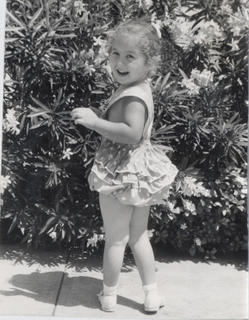Monday, September 11, 2006
My Scorsese Rage
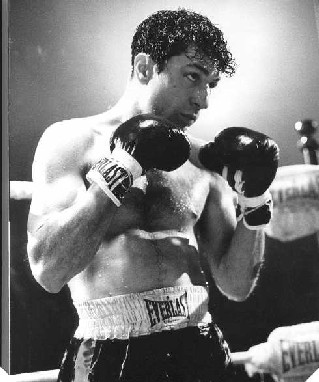
MY SCORSESE RAGE
Do you know what I feel The Aviator's precursor to have been? Scorsese's (of course) Raging Bull. We've seen DeNiro in, primarily, weighty--yet not meaty--roles in recent years. Or else, he's a wonderful "heavy" to the likes of Billy Crystal and Ben Stiller. Raging Bull is something else: it's a documentary...within a movie...within a documentary (or at least that's the way I interpreted it). Chock-full of blood, guts, and hubris--a la Othello (I credit the Wikipedia article with this analysis), it is, nonetheless, a tale of redemption. No wonder DeNiro won his Oscar for his portrayal of Jake LaMotta (who, incidentally, had a club in Miami during the mid-1950's). (And then LaMotta turned around and sued Scorsese.) I was riveted and fascinated, and I could see how filmmakers have been infuenced by "the Scorsese touch": attention to detail; creative cinematography; special use of slow-motion effects. The movie derives its power in no small measure from the fact that it was filmed in black and white (except for a brief--and totally "happy"--sequence). Where--and how--does this tie in to The Aviator? Another tale of hubris and redemption, albeit as lush in its color as Raging Bull was stark in its black and white. Another biopic from a great master of the genre. Raging Bull is generally considered to be Martin Scorsese's masterpiece. I'm still digesting it, even though it took me twenty-six years to find it.
The Aviator: In this, the year of at least two other great biopics (Ray, Kinsey), Martin Scorsese's latest is sure to be a contender in the Globe/Oscar race. Leonardo DiCaprio grows into his role as Howard Hughes, from daring young mega-entrepreneur, through his middle age, by which time he was both engrossed with and battling his inner demons, and subtly, yet definitively, hints at the darkness that would ultimately engulf this brilliantly eccentric man toward the end of his life. Simply put, Howard Hughes was a visionary. He was a multifaceted genius with many talents, and many passions. His greatest passion, however, was to fly. DiCaprio captures this spirit, and embodies it more and more strongly as the movie progresses: by the end, I felt as if it were Hughes on the screen. The rest of the cast was also superb, especially Cate Blanchett as Katharine Hepburn, the great love of Hughes' life, complete with Miss Hepburn's flippancy, New England reserve, and, yes, that Connecticut twang. The lovely Kate Beckinsale, as Ava Gardner, provides the other female interest. The scenes with Blanchett and Beckinsale, notwithstanding, Scorsese does not let us forget that Hughes was a man's man, too: DiCaprio's interactions with the great character actor, John C. Reilly, as Hughes' business manager, Noah Dietrich; with Alec Baldwin, as Hughes' competitor, Pan American founder Juan Trippe; and with Alan Alda, as the insatiably greedy Senator Ralph Owen Brewster, are rife with emotion, both poignant and riveting at the same time. The Senate hearing showdown between Hughes and Brewster toward the end is downright bombastic: it was by this point that DiCaprio had me totally convinced. Although Hepburn never fully leaves him, and Gardner lends a helping hand at a point when he sorely needs it, Hughes is, at the end, surrounded by only a tiny group of fiercely protective employees. His impending solitude, at the end, is palpable. This projection into the future is augured by so many obvious -- yet subtle -- signs, that you don't mind when Scorsese brings the (two and a half hour) movie to a halt: Howard's back with his mom. He makes three predictions about his future. They all come true. It takes a very special individual for this to happen. Leonardo DiCaprio captured Howard Hughes' fire, his intense zeal for life. It's going to be a tough call come February, but I feel Leo will be a strong contender. (He won the Golden Globe for Best Actor in a Drama for 2004.)
Above all else: Scorsese stressed Hughes' passion for aviation. Remember trips to Europe in the '60's: New York/Newfoundland/Ireland/Paris? Think TWA. Thank Howard Hughes.
--My Aviator review originally appeared in the end of December, 2004 issue of Seaside Scoop; Peggy Fisher, Editor.
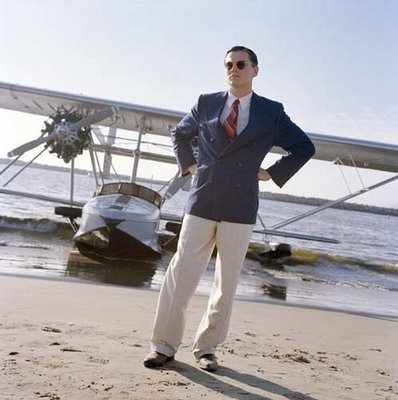
Georgina Marrero
Monday, September 11, 2006
In remembrance of a good that was a good before it became a bad.
Friday, September 08, 2006
Edward R. Murrow Isn't Turning Over In His Grave...
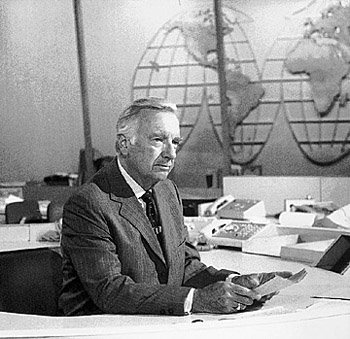


...not yet, anyway.
I take full credit--and responsibilty--for the following rant.
When it was announced that Katie Couric was going to take over the CBS anchor spot, my initial reaction was, "Whoa!" I've been blindly watching the CBS Evening News at 6:30 p.m. since I was a child. Along with the rest of my generation, I grew up with Uncle Walter's reassuring "And that's the way it is," as well as with his...humanity. I felt my world--the CBS graphic for the globe, at least--was literally turned upside down when he announced his retirement, and the already known to be brash Texan, Dan Rather, took his spot. I gradually became accustomed to his face and his delivery: he was daring, bold, and, alas, still brash at a point when perhaps he should have known better. Ratings, schmatings: I didn't really keep up with these things. I just had to watch CBS...even when my renegade mother switched to the late, great Peter Jennings, not only because he was "a classy human being" (as ABC cameramen informed me during what may not turn out to be the last "post-Catro death vigil" since July 31), but because he was at one point married to a Hungarian named Kati Marton. Only my mother; only a Hungarian. Well, back to Dan, ratings, and CBS. I had no idea. Hell, I'm either so lazy or such a creature of habit that I've even watched the local CBS affiliate, regardless of where I've lived. I didn't realize Dan's edginess was going to catch up with him until he committed his major faux pas. When Bob Schieffer took over for him a year ago March, I once again felt comforted. That first night, though, I almost sensed that poor Bob was carrying CBS News's egg collectively on his face. Brave, and valiant, he held up the fort. I don't know about you, but I enjoyed his gentle jokes, and his calm entreaties to return to watch him, night after night. I haven't been a fan of daytime TV for a very long time in my life, now, so all I knew about Katie Couric was that a) Her husband had passed away from colon cancer; and b) That she's perky. (And that she is.) SO, I thought to myself, "Is this a gimmick?" I deliberately avoided all the hype. I wasn't even home on Tuesday to watch her first newscast. Not on purpose, though--when a budding playwright finishes a play, she just has to get it photocopied as soon as possible! However, I did catch Bob's last broadcast, as I had Dan's...and, many years earlier, Uncle Walter's. Brave; valiant; gallant; and strong. Thanks for keeping CBS News afloat, Uncle Bob!
Ed's looking down on all of you, with cigarette in hand. That includes you, Katie.
Lighten up a bit, though: too, too serious, what I saw last night. I thought he'd be turning over in his grave, but he isn't. Not yet, anyway. However, don't you want him to...at least a little bit? Come what may, I'm a CBS News fan...for life! And that's the way it is, Friday, September 7, 2006. This is Ninina Mameyez, saying, "Good afternoon!"
Don't say I didn't warn you.
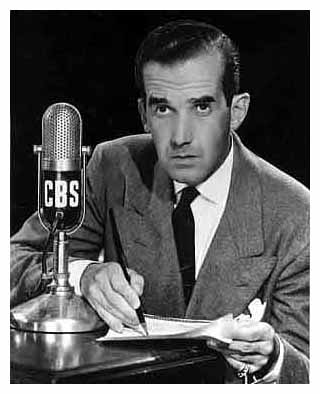
Friday, September 01, 2006
Taking a Leak

Where Ernesto Should Have Remained--si, en una palangana!
The aguacero--rainstorm--in my little tale below took more of a leak on us than Ernesto. He's so angry, though, that he never fully graduated from Tropical Storm Elementary that he's vented his childlike wrath on the Carolinas and is dribbling his way up the mid-Altantic and Eastern Seaboard. He's even going to impact Syracuse, of all places--and even the southernmost reaches of Canada--before he zips it.
May no wave wafting in from off the coast of Africa--or from wherever--make it to Hurricane High School this year. Keep it up, National Hurricane Center--keep it up!
(At the same time, though, thinking of John about to assault the Baja Peninsula, and Cabo San Lucas. Also, all those typhoons in the Far East: I experienced one in 1989, while in Hong Kong. In the aftermath of Tienamen Square, no less. All I remember is signs flapping in the wind...)
Come what may, the drought is over.
TAKING A LEAK
BY GEORGINA MARRERO
Drought-like, until recently, the summer rains have begun in earnest. While at Quirantes Orthopedics, where I was choosing a suitable arm brace to help alleviate my computer slouch induced tendonitis, it began to pour. And pour.
Fortunately, the grandson of the man who had worked alongside my father, so many years ago, and I found much to talk about while we waited for it to escampar. His ancestor had founded the family firm in Matanzas over one hundred twenty years ago. I did not hesitate to mention our great compadre, Joaquin Albarran, whose portrait I had just donated to the Cuban Heritage Collection at the University of Miami. The young man beamed at the knowledge of our shared history.
With my arm brace fitted and firmly in place, I hurried back to my car under light rain. Cutting across Eighth Avenue, and then up Seventh Street, I decided an ajiaco at La Carreta would be the perfect lunch. So, turning at Twenty-Seventh Avenue, I ascended Calle Ocho, past Versailles on the right, and turned left into La Carreta’s parking lot. A very convenient spot was awaiting me.
As the restaurant was packed, the elderly maitre d’ ushered me to the booth catty cornered from the end of the counter, directly across from the bathroom. Thrilled about neither the location nor the lumpy bench seat, I perched on the corner, was handed my menu, and ordered my ajiaco and a batido de fruta bomba. As soon as the crusty garlicky bread and my batido arrived at my table, I quickly gulped down half of the shake and ate two pieces of bread.
In the meantime, two girls sat down at the booth in front of mine: the one I’d coveted. They ordered an ajiaco and a sopa de pollo, as well as a medianoche to go. Although my order had gone in first, they were served their soups before I. Insult added to injury, I felt. The waitress and I made eye contact. Another server arrived with my soup, whereupon the waitress arrived with yet another ajiaco for my consumption. I didn’t get to keep the second one, though.
Había escampado long enough: Empezó a llover a cántaros. Una cortina de agua estaba cayendo afuera. Sheet after sheet of rain pummeled the window. Savoring the end of my batido and my ajiaco, I decided to take my time.
For some reason, the girls had moved next to each other. They had begun to laugh. And then I saw why. La tempestad had found its way inside. From somewhere directly over their booth, water was falling from the ceiling, into a glass, onto the table, and onto the recently vacated lumpy bench seat.
To add insult to La Carreta’s injury, a palangana was strategically placed on the floor to catch the overflow.
Several other girls sitting at the counter looked over and also began to laugh. The waitress and the server rushed over. There was nothing that could be done, for the time being.
Standing up to more properly observe this espectáculo, I made a comment about a “leaky restaurant.” The waitress pointed to the air conditioning vent right above the girls’ table. That was the culprit.
Good sports all the way, the girls kept laughing. I kept staring at the steady drip-drip-drip, in sync with what Mother Nature was sending our way outside. The girls left.
The waitress had come and gone; so had our other server. The maitre d’ made his appearance. And then along came the manager. They all, merely, stared.
But the rest of us laughed. And I, for one, was glad I had ended up in that not-so-crummy booth.
Cuando escampó suficientemente, I left. A very nice man gallantly offered his paraguas as far as the cafetería in the back. And then I went across a charco, got into my car, and came home.
The drought is over.
Copyright, 2004 by Georgina Marrero 650 words All Rights Reserved
